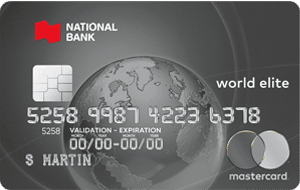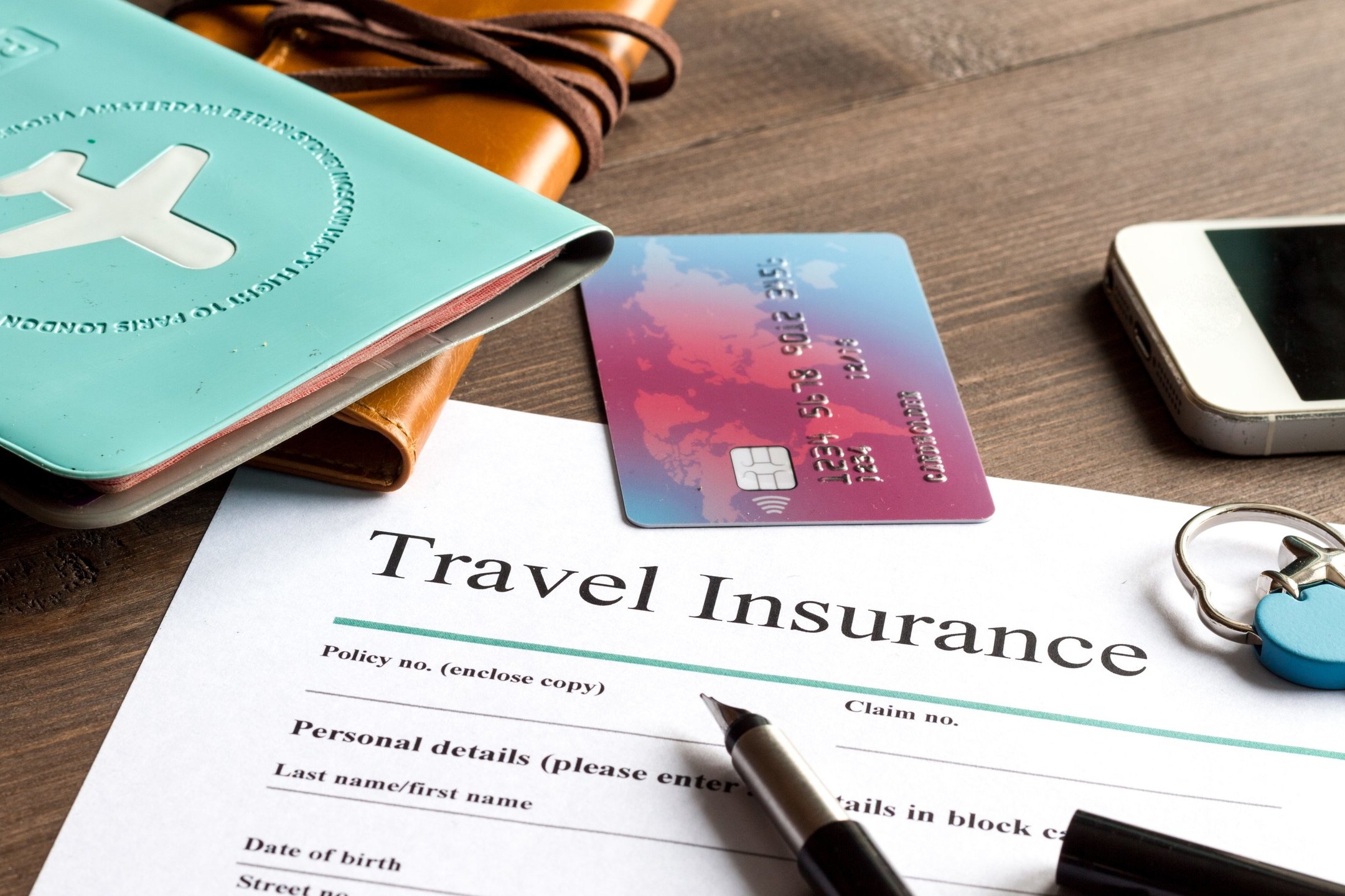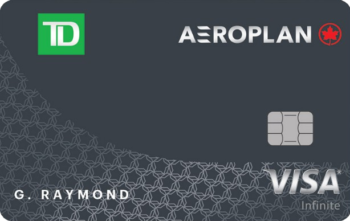In this edition of Head-to-Head, we’ll compare two of the best Mastercards in Canada: the HSBC World Elite Mastercard and the National Bank® World Elite® Mastercard®.
Mastercard is perhaps the most widely accepted card in the world, and each of these two cards presents a strong argument for being the top Mastercard in Canada and for deserving an ongoing place in your wallet.
Let’s pit these cards against each other using a range of criteria to find out which emerges as the most elite of the World Elite Mastercards.
Credit Card
Best Offer
Value
$150 annual fee
$0
Apply Now
Card Basics
Let’s begin with the properties that tend to matter most when comparing credit cards: welcome bonuses, annual fees, and earning rates.
1. Welcome Bonus
We’ll begin our Head-to-Head by looking at the most outwardly attractive part of a credit card: the welcome bonus.
Starting with the National Bank® World Elite® Mastercard®, the current welcome bonus is for 70,000 rewards points. This all-time-high welcome bonus is only available until June 30, 2023, and is broken down into three steps:
- 30,000 rewards points upon spending $5,000 in the first three months
- 10,000 rewards points upon signing up for credit card payment insurance for a minimum of three months
- 30,000 rewards points upon spending $12,000 in the first 12 months
You’ll receive the second batch of 30,000 rewards points after renewing the card for a second year, but since they’re worth up to $300, it could very well be worth the annual fee, as we’ll explore later in this article.
We’ll look at how best to redeem National Bank rewards points later on, but for now, let’s just note that the total value of the welcome bonus is worth up to $700 if you earn the full bonus.
Now, turning our attention towards the HSBC World Elite Mastercard, there are two different welcome bonuses to consider: one for Quebec residents, and one for non-Quebec residents.
Generally speaking, the Quebec welcome bonus is usually higher and comes without a minimum spending requirement; however, it comes with an annual fee. On the other hand, the non-Quebec welcome bonus tends to be lower, but the first-year annual fee is typically waived.
At the moment, if you’re a Quebec resident, you can potentially earn up to 110,000 HSBC Rewards points as a welcome bonus, which is broken down as follows:
- 20,000 HSBC Rewards points upon completing your first purchase
- 90,000 HSBC Rewards points upon keeping your account open and in good standing for six months
If you’re a resident elsewhere in Canada, you’ll earn a total of 80,000 HSBC Rewards points, broken down as follows:
- 20,000 HSBC Rewards points upon completing your first purchase
- 10,000 HSBC Rewards points upon spending $1,000 in each of the first six months
HSBC Rewards points can be redeemed for 0.5 cents per point (cpp) (200 points for $1) as a statement credit towards any travel purchase. This means that the welcome bonus is potentially worth $550 for Quebec residents, and $400 for non-Quebec residents.
However, it’s important to note that HSBC Rewards can also be converted to three different airline loyalty programs: British Airways Avios, Singapore Airlines KrisFlyer, and Cathay Pacific Asia Miles.
With the added flexibility for redemptions, we value HSBC Rewards at 0.8 cents per point. If you look at the welcome bonus this way, then you can consider that it’s worth up to $640, which is just shy of the $700 value from the National Bank® World Elite® Mastercard®.
Verdict: Despite the fact that you’ll receive 70,000 rewards points with the National Bank® World Elite® Mastercard® as opposed to 80,000–110,000 HSBC Rewards with the HSBC World Elite Mastercard, the National Bank points are worth more on paper ($700 vs. $400–640, depending on how you look at it).
This leads to the National Bank® World Elite® Mastercard® emerging as the victor in the first round.
2. Annual Fee
Another important factor to consider when applying for a credit card, and also when deciding to keep it for the long-term, is the annual fee.
The National Bank® World Elite® Mastercard® currently comes with an annual fee rebate for the first year, and then has an annual fee of $150 in subsequent years. This offer expires on June 30, 2023.
The HSBC World Elite Mastercard has a similar annual fee of $149. For Canadian residents outside of Quebec, the fee is waived for the first year, whereas Quebec residents are liable to pay the annual fee in their first year as cardholders.
Verdict: While the HSBC World Elite Mastercard comes out ever-so-slightly ahead, it’s so close that it feels more appropriate to call this one a tie.
However, for Quebec residents, the National Bank® World Elite® Mastercard® is the clear winner, as it’s the only option between the two with a First Year Free offer.
3. Earning Rates
The HSBC World Elite Mastercard currently has a three-tiered earning structure, which is as follows:
- 6 HSBC Rewards points per dollar spent on eligible travel expenses
- 4 HSBC Rewards points per dollar spent on gas, groceries, and drug stores
- 2 HSBC Rewards points per dollar spent on all other purchases
Since 200 HSBC Rewards points can be redeemed towards $1 in travel purchases, you’ll effectively get a minimum 3% return on travel purchases, a 2% return on gas, groceries, and drug stores, and a 1% return on all other purchases made with the HSBC World Elite Mastercard.
Meanwhile, the National Bank® World Elite® Mastercard® also has a three-tiered earning structure:
- 5 rewards points per dollar spent on grocery and restaurant expenses (up to $2,500 per month in all categories)
- 2 rewards points per dollar spent on gas, electric vehicle charging, recurring bill payments, and travel booked through the National Bank online portal, as well as groceries and restaurant expenses (after $2,500 per month)
- 1 rewards points per dollar spent on everything else
It’s worth noting that you’ll earn 5 points for every dollar in eligible grocery and restaurant purchases until a total of $2,500 in gross monthly purchases is charged to the account (all categories combined). Afterwards, the earning rate for groceries and restaurants will drop to 2 points per dollar spent.
If you redeem National Bank rewards points at the highest value of 1cpp by booking through National Bank’s online travel portal, you’re looking at a return of 5% for spending on groceries and restaurants until you reach $2,500 charged to the card each month.
Aside from that, you’ll get a 2% return on gas, electric vehicle charging, recurring bill payments, and travel booked through the National Bank online travel portal. The base earn rate for all other purchases is 1%.
Verdict: The National Bank® World Elite® Mastercard® has the highest earning rate among any Mastercard in Canada, with a superior 5% on groceries and restaurants until the monthly $2,500 cap is reached. Once you’ve spent $2,500 on the card across all categories, the earning rate drops down to 2%.
However, the HSBC World Elite Mastercard is the better of the two for travel expenses, with a 3% earn rate versus National Bank’s 2% earn rate for travel booked through National Bank’s online travel portal, and 1% for all other travel.
Ultimately, the winner here will highly depend on your own spending habits.
However, given that the National Bank® World Elite® Mastercard®’s rate of return is significantly higher than HSBC World Elite Mastercard’s return for groceries and restaurants, as well as a 2% return on a variety of other categories, we can proclaim the National Bank® World Elite® Mastercard® as the winner in this category.
Perks and Benefits
Now that we’ve covered the card basics, let’s shift our attention towards the perks and benefits that come with these two cards, in order to determine which Mastercard comes out on top.
1. Travel Credit
Both the National Bank® World Elite® Mastercard® and the HSBC World Elite Mastercard offer annual travel credits.
The National Bank® World Elite® Mastercard® comes with an annual $150 travel credit that resets on January 1 each year. This credit can be used for a handful of specific travel expenses, including:
- Airport parking fees
- Baggage fees
- Seat selection fees
- Access to airport lounges
- Ticket upgrades
On the other hand, the HSBC World Elite Mastercard comes with a lower $100 Travel Enhancement Credit. The credit is a lot more flexible, as it can be used against any travel expense.
Verdict: If you can make use of the National Bank® World Elite® Mastercard®’s travel credit, then you’ll be getting an extra $50 of value. However, given how flexible the HSBC World Elite Mastercard’s travel credit is, we’ll side with HSBC for this category of comparison.
2. Redeeming Points
Both the National Bank® World Elite® Mastercard® and the HSBC World Elite Mastercard have flexible redemption options, and allow you to redeem points against any travel expenses.
As we’ve already mentioned, redeeming National Bank® World Elite® Mastercard® rewards points for travel through National Bank’s online travel portal will give you a value of 1cpp.

However, if you choose to redeem rewards points to offset travel expenses purchased elsewhere, the points become less valuable.
On the other hand, you can redeem HSBC Rewards points against any travel purchase made on your HSBC World Elite Mastercard at full value.
Verdict: As the National Bank® World Elite® Mastercard® requires the use their own travel portal to get the most bang for your National Bank rewards points, we’ll give a slight edge to HSBC here as you can flexibly redeem for maximum value.
3. Transfer Partners
HSBC Rewards can be transferred to frequent flyer program partners at the following rates:
- 25,000 HSBC Rewards points can be converted into 8,000 Cathay Pacific Asia Miles.
- 25,000 HSBC Rewards points can be converted into 9,000 Singapore Airlines KrisFlyer miles.
- 25,000 HSBC Rewards points can be converted into 10,000 British Airways Avios.
The ability to transfer HSBC Rewards points into Singapore Airlines KrisFlyer miles is perhaps the most appealing way to redeem points in this manner. HSBC Rewards is the sole Canadian transfer partner with KrisFlyer, which provides access to one of the most sought-after airline experiences in the world: Singapore Airlines Suites Class.
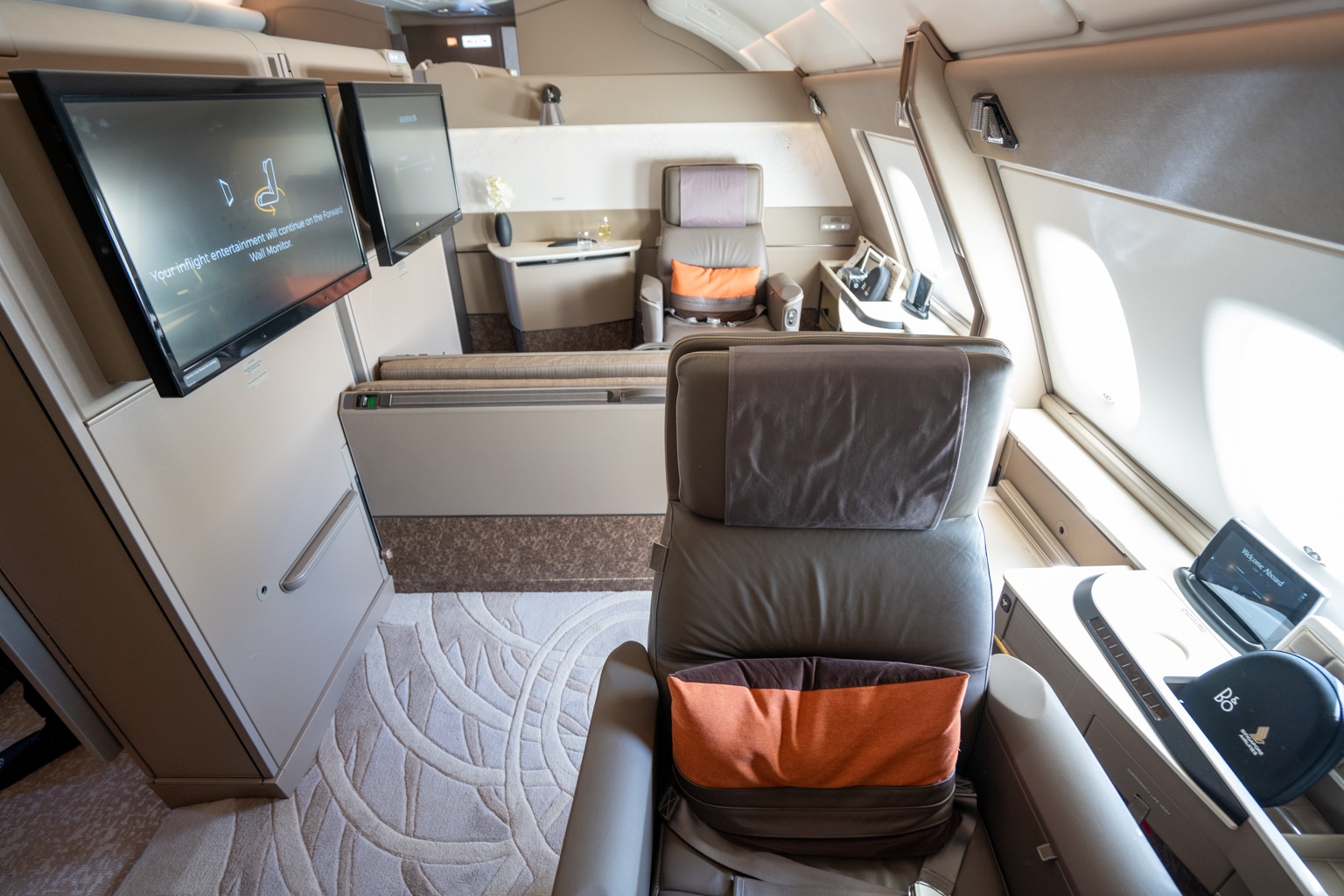
HSBC Rewards gives Canadians the most direct and best way to earn Singapore Airlines KrisFlyer miles on their everyday spending.
Meanwhile, National Bank’s rewards points cannot be transferred to any airline or hotel partners.
Verdict: The HSBC World Elite Mastercard is the clear winner in this category, since National Bank’s rewards points cannot be transferred to any airline or hotel partners.
Redeeming HSBC Rewards points for First Class and business class tickets allows you to squeeze more value out of your points than the baseline 0.5cpp would allow for statement credits. Furthermore, a premium cabin redemption would most definitely be higher than the 1cpp fixed value of National Bank’s rewards points.
4. Foreign Transaction Fees
Similar to its lack of transfer partners, the National Bank® World Elite® Mastercard® also lags behind the HSBC World Elite Mastercard when it comes to foreign transaction fees.
You’ll be charged an extra 2.5% every time you use your National Bank® World Elite® Mastercard® on a purchase that isn’t in Canadian dollars, but you won’t be charged anything if you use an HSBC World Elite Mastercard.
One of the main draws of the HSBC World Elite Mastercard is that it comes with no foreign transaction fees, making it a much better card to have with you when you travel outside of Canada.
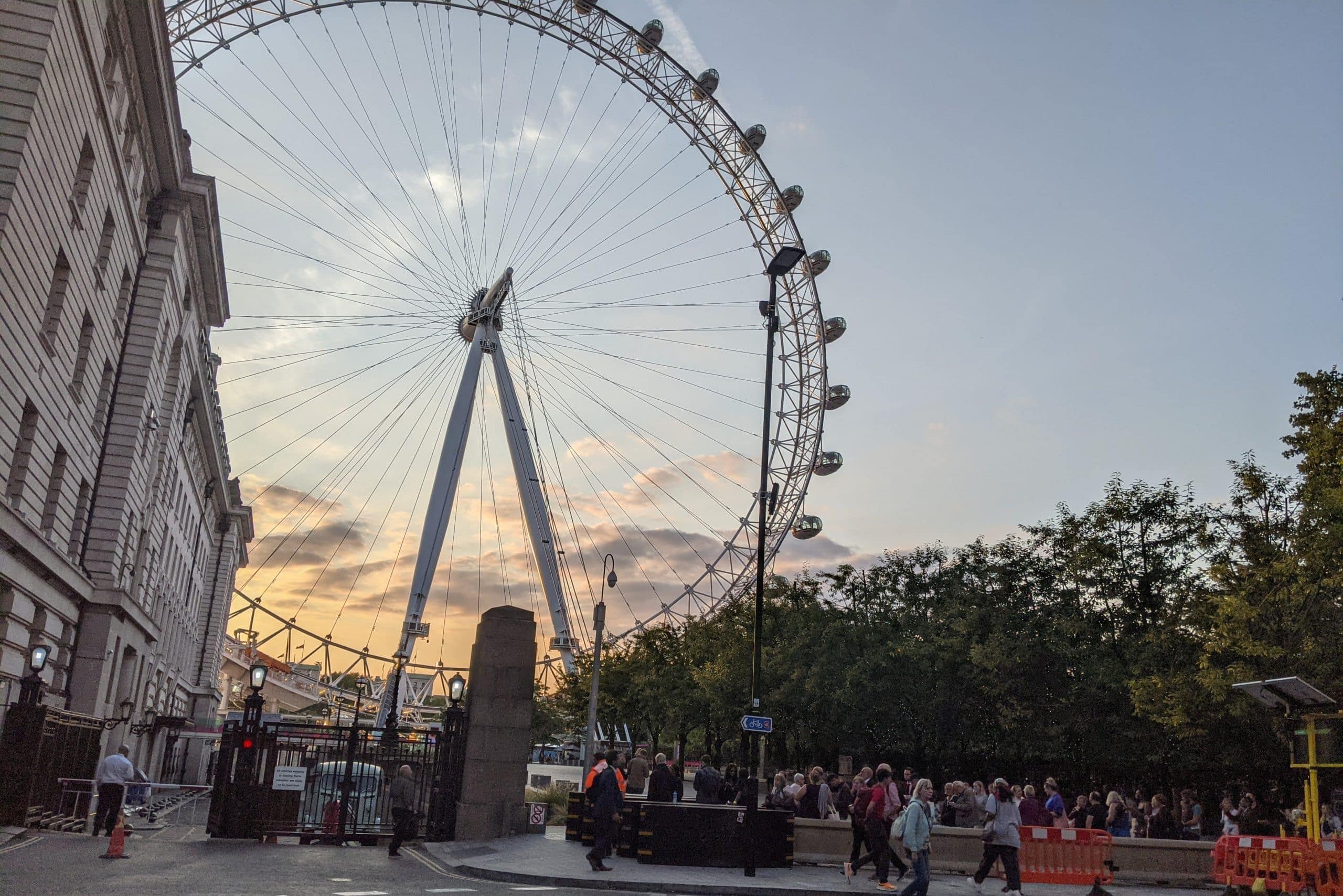
Of course, how much this actually matters depends on how much you spend on foreign transactions.
With the National Bank® World Elite® Mastercard®, you’ll end up paying an additional $25 for every $1,000 on non-Canadian dollar purchases, whereas with the HSBC World Elite Mastercard, you’ll pay $0.
Verdict: The HSBC World Elite Mastercard is the obvious winner, with no foreign transaction fees as a key ongoing benefit of having the card.
5. Insurance Coverage
Insurance coverage can often be an afterthought when considering which credit card to apply for. However, having the right insurance can indeed be a valuable benefit, should you ever need to use it.
Both the National Bank and HSBC World Elite Mastercards provide strong insurance coverage, so let’s look at which one ekes out as superior.
Starting with out-of-province emergency medical and hospital insurance, the National Bank® World Elite® Mastercard® credit card provides up to $5 million per person for durations that differ depending on your age:
- 60 days for cardholders aged 54 and younger
- 30 days for cardholders aged 54–64
- 15 days for cardholders aged 65–75
For the HSBC World Elite Mastercard, you’ll be covered for significantly less, receiving $2 million in emergency medical coverage for 31 days if you’re under 65, and $2 million for 21 days if you’re 65 or older.
Both National Bank and HSBC World Elite Mastercards provide comparable coverage for the following:
- Trip cancellation/interruption
- Flight delays
- Delayed and lost baggage
- Travel accidents
- Car rental insurance
- Purchase protection for theft and damage
- Extended warranty
- Medical, general, and legal assistance
- Mobile device insurance
The main difference lies in what’s required to get some of the above travel related insurance. With the HSBC World Elite Mastercard, you’re required to charge the full expense of your trip to your card in order to be eligible for the insurance benefits.
However, with the National Bank® World Elite® Mastercard®, you’re only required to use your card for a portion of the expense to be eligible for insurance coverage.
This difference can have huge implications for travellers: you wouldn’t be covered by insurance for any travel or flights booked with points if you use an HSBC World Elite Mastercard to pay for the required taxes and fees, but you would be covered if you use your National Bank® World Elite® Mastercard® to pay for those same taxes and fees.
Verdict: Despite both cards offering relatively strong insurance packages, the National Bank® World Elite® Mastercard® credit card comes out ahead due to its coverage on award bookings, lengthy 60 day insurance duration for some cardholders, and its higher limits for emergency medical insurance.
The winner here largely depends on your age, and whether or not you tend to redeem points for bookings.
Depending on how old you are, the National Bank® World Elite® Mastercard® is the clear winner, as it provides insurance coverage on award bookings, and gives some cardholders an unprecedented 60 days of emergency medical insurance.
If you’re over 64, then the HSBC World Elite Mastercard has the advantage for insurance coverage.
6. Airport Lounge Access
The National Bank® World Elite® Mastercard® comes with unlimited lounge access to the National Bank Lounge at Montreal Pierre Elliott Trudeau International Airport for you and one guest. Lounge access is only applicable if you’re travelling internationally (not including the United States), and access to this lounge normally costs $56 (CAD) per person.

The HSBC World Elite Mastercard and the National Bank® World Elite® Mastercard® come with a DragonPass membership, but unfortunately all this means is that you’re able to pay for access to DragonPass lounges worldwide.
Verdict: While neither of these cards have particularly outstanding lounge access inclusions, the National Bank® World Elite® Mastercard® comes ahead as being the only one of the two to offer free lounge access, even if it’s only for a single lounge in Montreal.
7. Wi-Fi
As a World Elite product, both the National Bank and HSBC World Elite Mastercards offer unlimited global access to Boingo Wi-Fi hotspots. This includes 12 free 90-minute Wi-Fi sessions on select airlines, such as WestJet, Virgin Atlantic, and Etihad Airways.
Verdict: This category is a dead tie, as both cards offer the exact same benefit.
Other Factors
1. Supplementary Cards
The National Bank® World Elite® Mastercard® has a $50 annual fee for adding a supplementary cardholder to your account.
Meanwhile, the HSBC World Elite Mastercard doesn’t charge any fees for up to four supplementary cards added to your account.
Verdict: Due to the absence of fees for adding supplementary cardholders, the HSBC World Elite Mastercard is the winner here.
2. Ease of Getting Approved
In order to qualify for both the National Bank® World Elite® Mastercard® and the HSBC World Elite Mastercard, you must have an individual income of at least $80,000 or a household income of $150,000.
Verdict: We have ourselves another tie, since both cards have the identical income requirement.
3. Visual Appearance
Both World Elite Mastercards are fairly similar in appearance, although the HSBC card has a vertical design and the National Bank card has a horizontal design. They both have a noticeable black and grey primary presence, with a hint of red showing up in their respective logos.
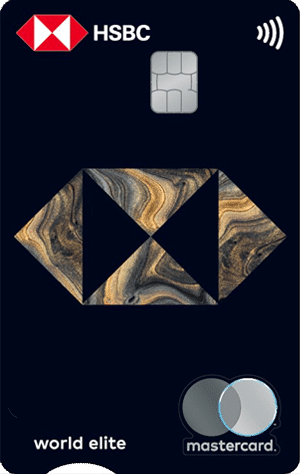
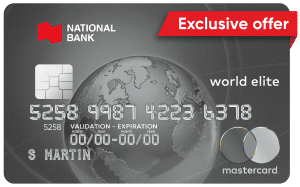
Verdict: Despite both cards having sleek designs, we’ll give the edge to the HSBC World Elite Mastercard due to the modern vertical design and the splash of colours on the HSBC logo.
Conclusion
Both the National Bank® World Elite® Mastercard® and the HSBC World Elite Mastercard are great options if you’re looking to add a keeper Mastercard to your wallet.
When we compare the card basics, then the National Bank® World Elite® Mastercard® is most definitely the better card of the two, as it currently comes with a stronger welcome bonus worth up to $700 and a higher potential for earning, with a 5% earning rate on grocery and restaurant purchases.
As for the perks and benefits, the HSBC World Elite Mastercard excels with a more flexible travel credit, multiple transfer partners, greater ease of redeeming points at maximum value, and no foreign transaction fees.
The HSBC World Elite Mastercard is arguably the better all-around credit card, due to its various travel perks that can be very beneficial.
At the same time, the National Bank® World Elite® Mastercard®could be better suited to you, should your spending or travel patterns more closely align with its features. If you tend to highly value insurance coverage, then the lengthy duration of coverage is much longer than what’s currently offered on the HSBC World Elite Mastercard, or any other credit card in Canada for that matter.
Determining Canada’s supreme World Elite Mastercard really comes down to the minutiae, and we hope that poring over the above comparison will help you decide which card is best for you.






